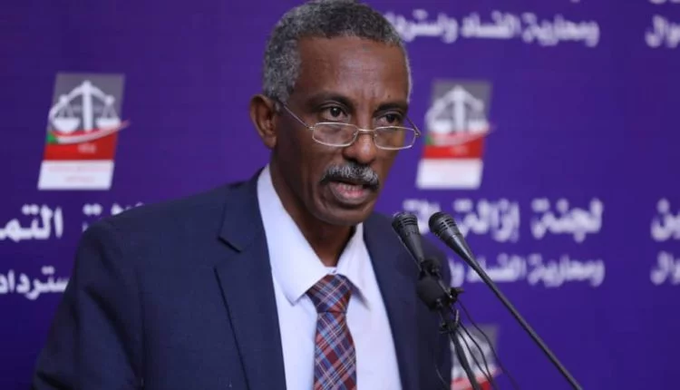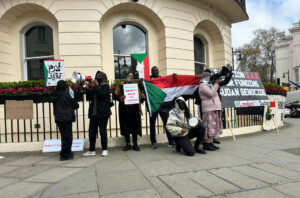‘Fugitive’ Wajdi Saleh reports to Sudan public prosecutors
Activist and outspoken opponent to the ousted Al Bashir regime, Wajdi Saleh, handed himself over to authorities in Khartoum yesterday, following orders from Sudan’s Public Prosecution Office. The former head of the now-dissolved Empowerment Removal Committee* (ERC) and leading member of the Forces for Freedom and Change-Central Council (FFC-CC) and the Arab Socialist Ba’ath Party, explained that his being public announcement as a fugitive, was “a clear attempt of character assassination”.
 Wajdi Saleh from the FFC-CC and Sudan Anti-Corruption Committee (Sudan Telegraph)
Wajdi Saleh from the FFC-CC and Sudan Anti-Corruption Committee (Sudan Telegraph)
Activist and outspoken opponent to the ousted Al Bashir regime, Wajdi Saleh, handed himself over to authorities in Khartoum yesterday, following orders from Sudan’s Public Prosecution Office. The former head of the now-dissolved Empowerment Removal Committee* (ERC) and leading member of the Forces for Freedom and Change-Central Council (FFC-CC) and the Arab Socialist Ba’ath Party, explained that his being public announcement as a fugitive, was “a clear attempt of character assassination”.
In a video posted on Saleh’s Facebook page, he denied any attempts to flee from the prosecutors, stating that his “phone was constantly on” and that he was “present on the streets and public seminars”. The FFC-CC member went on to add that the prosecutor was living in the same neighbourhood as him and reaffirmed there was “no attempt to run away”.
Saleh accused the prosecution of concealing the real complainant in the report, which is the Ministry of Finance. He said that the ministry’s communication was “not based on any evidence”, and that he was threatened with further harassment from Public Prosecutors, if he chose “not to support the current authority”.
Lawyer Moez Hazrat said that the actions taken by the Public Prosecution Office against Saleh by declaring him a fugitive, “are null and in violation of the law”. Hazrat considered them to be an “exploitation of the prosecution to settle political scores”.
Saleh stated that any attempt of character assassination from the “coup, putschists, and remnants (of the previous regime)”, would not discourage him or his associates from “the path to revolution”.
‘Saleh’s home attacked’
A group of armed people in civilian clothes tried to storm the home of Wajdi Saleh on the evening of September 27.
Saleh told Radio Dabanga that the gunmen tried to break into the house by force and smashed the light bulbs and surveillance cameras. He explained that they attempted to break the door of the house for a long period of time but failed.
After the break-in attempt, the gunmen withdrew to a location close to the house and stayed there for a long time before finally leaving.
Saleh expressed his astonishment that no security forces, police, or other authority of the jurisdiction had arrived at the house to investigate the incident, despite the fact that it had been published in the media since the early hours of the following day.
Earlier that month, Saleh called for the restructuring of the military and security apparatus to ‘purify’ it from the remnants of the former regime who still hold a lot of power. He has also been an outspoken opponent of the coup led by Sudan Armed Forces (SAF) Commander Lt Gen Abdelfattah El Burhan, who is also the Chairman of Sudan’s Sovereignty Council.
Saleh was arrested earlier this year along with two other ERC members and was detained for more than two and a half months in a move that was seen by many as an attempt to silence political dissent after the October 25 military coup.
* The full name of the committee is the Committee for Dismantling the June 30 1989 Regime, Removal of Empowerment and Corruption, and Recovering Public Funds. It was established by the government of Abdallah Hamdok at the end of 2019 with the aim to purge Sudan of the remnants of the Al Bashir regime. Empowerment (tamkin) is the term with which the ousted government of Omar Al Bashir supported its affiliates by granting them far-going privileges, including government functions, the setting-up of various companies, and tax exemptions.











 and then
and then